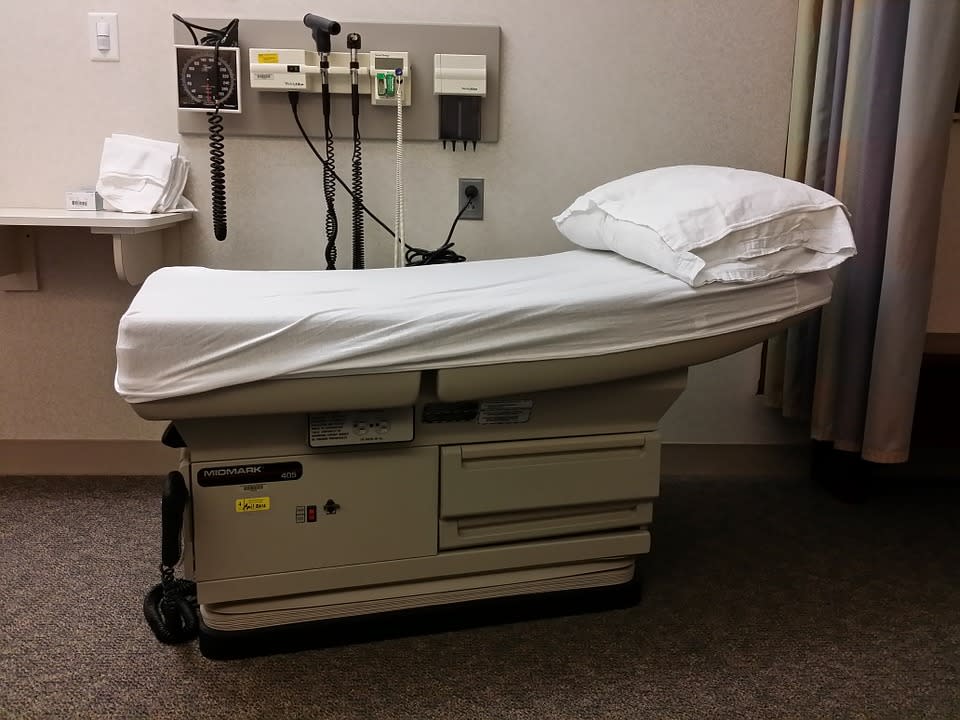Ohio dealing with STI increase, health departments strategize outreach efforts

A medical exam room. File photo from MaxPixels.net.
Regions in Ohio have been tracking an alarming increase in sexually transmitted infections, with some areas more than doubling in syphilis rates specifically, according to recent data.
Groups including Columbus Public Health, the Cleveland Department of Public Health, and Planned Parenthood of Greater Ohio reported overall increases.
From 2016 to 2021, the Ohio Department of Health said syphilis rates rose 82% in the state. According to Columbus Public Health, syphilis cases between 2019 and 2021 went from 613 to 1,447.
In Cleveland, syphilis incidence “has been rapidly increasing since 2018” and has been the “fastest increasing STI in Cleveland,” according to a report from the Cleveland Department of Public Health, analyzing data from 2017 to 2021.
Source: Cleveland Department of Public Health
For Planned Parenthood, health centers in the state saw more than 3,300 cases of syphilis in 2022, six times as many cases as they saw in 2013, and double the amount they saw in 2020.
Nationally, syphilis cases rose almost 80% over the last five years, leading them to conclude that STIs “must be a public health priority.”
“In 2022, more than 2.5 million cases of syphilis, gonorrhea, and chlamydia were reported in the United States,” the CDC stated. “The most alarming concerns center around the syphilis and congenital syphilis epidemics, signaling an urgent need for swift innovation and collaboration from all STI prevention partners.”
Using 2022 data, the CDC ranked Ohio 18th in amount of primary and secondary syphilis cases and 21st in congenital syphilis cases. Congenital syphilis is a disease that transfers from a pregnant person to a fetus, and can lead to miscarriage, stillbirth, premature birth and other in-vitro complications, along with impacts after a baby is born.
Columbus Public Health has seen congenital syphilis rates rise along with the increases in other types of the STI, with 34 cases in Franklin County in 2022, including two stillbirths and three infant deaths within the first fours days of life among those cases.
Cleveland’s public health department reported a “surge” of congenital syphilis, with number five times higher from 2021 to 2022. The department reported 32 cases among newborns in the last seven years.
An emphasis on testing and preventive care is at the heart of strategies for local health departments and clinics because experts identified a lack of testing as a contributing factor for spread in the state. During the COVID-19 pandemic, rates spiked in Columbus and Franklin County because residents delayed health care such as STI testing.
“Lower testing rates led to fewer people getting the treatment they needed to protect their health and prevent the spread of STIs in the community,” Kelli Newman, spokesperson for Columbus Public Health, told the Capital Journal.
Columbus has a Congenital Syphilis Review Board which is reviewing cases “to develop strategies and increase awareness among health care providers.”
“We are working with local emergency departments to increase syphilis testing, including testing of pregnant women, for early diagnosis and treatment, and we are ensuring that STI testing is available at all community-based HIV screening sites,” according to the department.
The Columbus agency also said a recent $1.8 million grant from the Ohio Department of Health will help them with identification and prevention programs.
“These funds are enabling us to ramp up our efforts to identify and prevent syphilis through increased testing, treatment and enhanced partner services to prevent STIs from passing person to person through sexual contact,” Newman said.
Planned Parenthood said financial improvement is always needed, since federal funding for STI programming has remained stagnant since 2018, despite increased need. The Greater Ohio chapter of Planned Parenthood reported the administration of more than 86,300 STI tests in the last year alone.
“Yet, rising infection rates demonstrate more needs to be done,” the group said in a statement.
PPGOH also expressed concerns about state legislation that may impact their funding as well. State Rep. Josh Williams, R-Sylvania, has introduced House Bill 475, which would prohibit state funds from going to “any entity that supports, promotes or provides abortions,” including local governments that provide reimbursements for “any related activity, including travel and donations to entities that support, promote or provide abortion.”
While STI testing is not directly connected to abortion treatment, clinics who also provide those types of treatments could be impacted by the prohibitions in Williams’ bill, which was referred to the Ohio House Government Oversight Committee at the end of April. It has not yet been scheduled for public hearings.
GET THE MORNING HEADLINES DELIVERED TO YOUR INBOX SUPPORT NEWS YOU TRUST.
The post Ohio dealing with STI increase, health departments strategize outreach efforts appeared first on Ohio Capital Journal.


